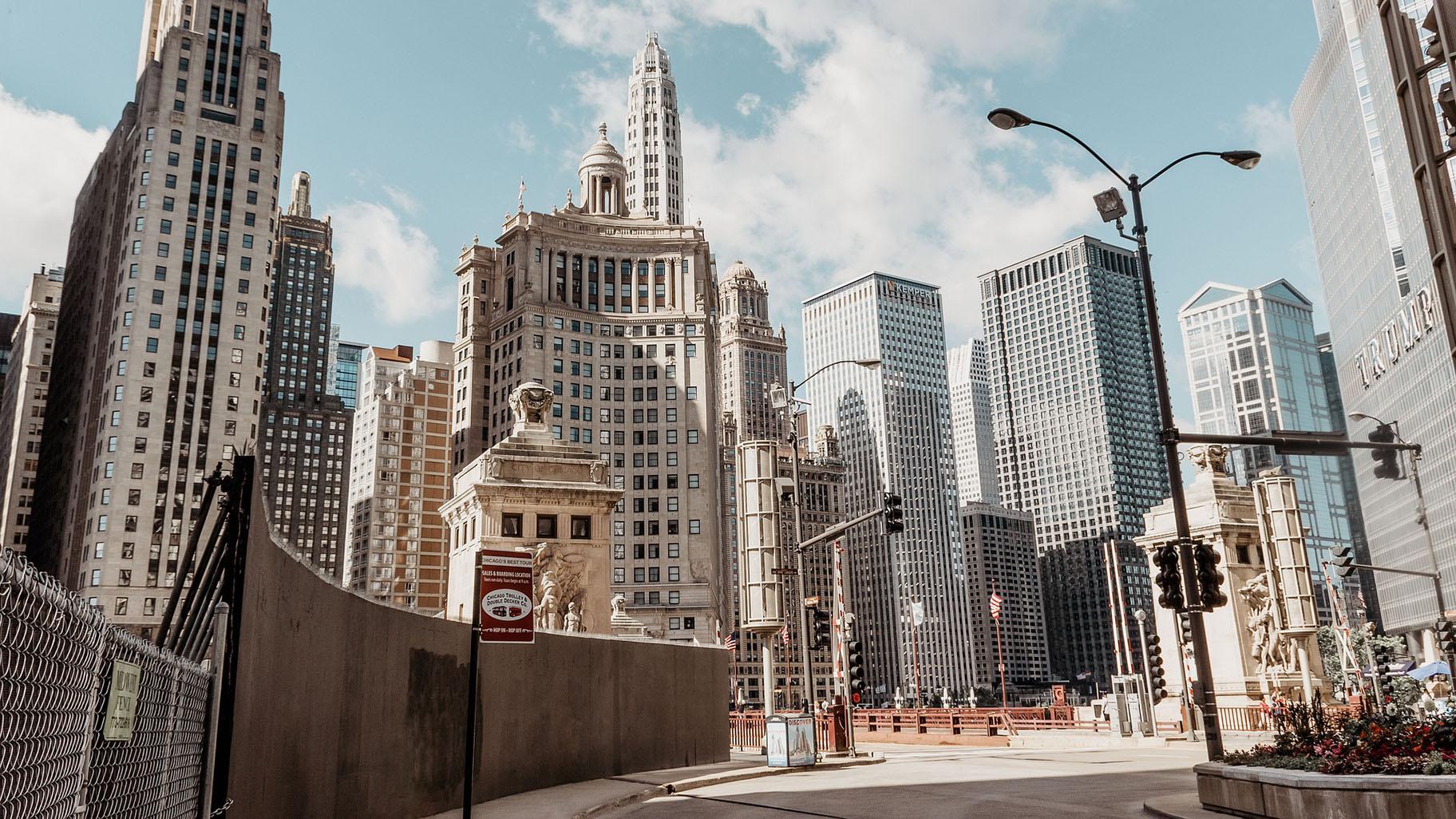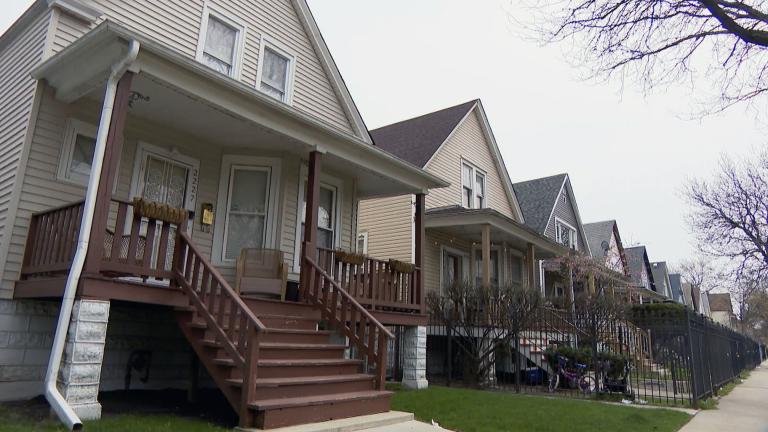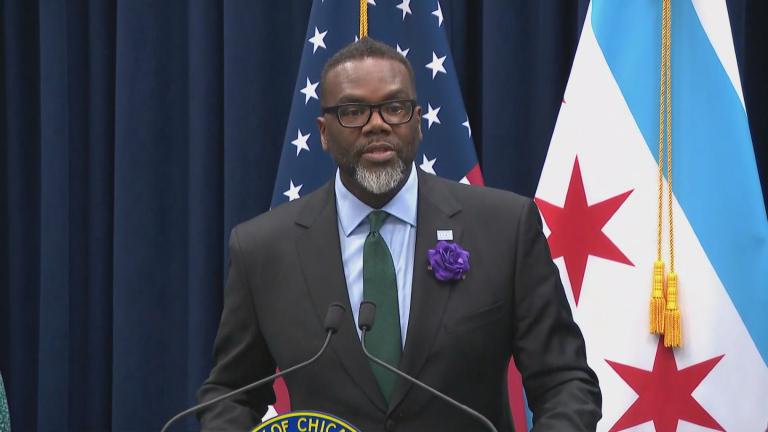 (Jürgen Polle / Pixabay)
(Jürgen Polle / Pixabay)
Mayor Lori Lightfoot’s proposal to spend $16.7 billion in 2022 faces two critical votes in the coming days, as members of the City Council wrangle behind the scenes on how to spend nearly $2 billion in federal aid while closing massive shortfalls caused by the COVID-19 pandemic.
Several progressive members of the Chicago City Council gathered Wednesday morning at City Hall to demand an up-or-down vote on a series of budget amendments they introduced to increase spending on public mental health clinics and expand affordable housing while cutting the budget for the Chicago Police Department.
Although the City Council’s Finance Committee and the City Council’s Budget and Government Operations Committee were originally set to meet earlier this week, those meetings were pushed back to Thursday and Friday — a sign that Lightfoot has yet to round up the 26 votes she needs to pass the package of ordinances that make up the city’s annual spending plan.
Ald. Maria Hadden (49th Ward) introduced a measure to redirect $44 million now earmarked for the 300 positions in the Chicago Police Department that Chicago Police Superintendent David Brown has said he is unlikely to fill before 2023.
A “common sense and responsible” approach would be to use that money to expand efforts to renovate single-room occupancy hotels, which often house the poorest Chicagoans in the worst conditions, Hadden said.
In all, Lightfoot’s budget proposes spending $635 million on affordable housing initiatives, $240 million more as compared with 2021. That will create and upgrade more than 4,000 homes earmarked for low- and moderate-income Chicagoans, according to the mayor.
Ald. Byron Sigcho Lopez (25th Ward) introduced a proposal to take $15 million from the Chicago Police Department and add it to the Department of Family and Support Services’ budget for violence prevention.
Chicago’s progressive leaders must take advantage of the “once in a lifetime” opportunities made possible by the $1.9 billion Chicago will get from the American Rescue Plan to make “big structural change,” Sigcho Lopez said.
Lightfoot’s proposal calls for the city to spend a total of $135 million on violence prevention programs, an increase of $85 million as compared with 2021.
Ald. Rossana Rodriguez Sanchez (33rd Ward) introduced a measure to take $10 million from the federal relief package to reopen mental health clinics closed by former Mayor Rahm Emanuel in 2011.
However, Dr. Allison Arwady, the commissioner of the Department of Public Health, opposes that proposal, saying Lightfoot’s efforts to expand centers of care across the city by partnering with federally-qualified health centers is more efficient and effective.
In all, Lightfoot’s plan proposes spending $86 million on mental health services, $52 million more than in 2021.
While the piles of federal COVID-19 relief cash the city has at its disposal — and Lightfoot’s decision to fund a range of programs demanded by progressive groups and alderpeople — has muted dissent over the spending plan, sticking points remain.
Those points of contention include a plan to use $31.5 million to send cash assistance to Chicagoans struggling amid the continuing COVID-19 pandemic.
Members of the City Council’s Black Caucus remain opposed to the effort, after Chair Ald. Jason Ervin (28th Ward) spent months blocking an identical proposal from Ald. Gilbert Villegas (36th Ward) earlier this year.
Ervin has said city should first craft a plan to pay reparations to the descendants of enslaved African Americans. Those funds would be better spent on violence reduction efforts, the group has told the mayor.
In addition, more conservative members of the Chicago City Council oppose the plan in total, saying it is not a sustainable way to spend public money or lift people out of poverty.
Other members of the City Council have pressed the mayor to drop plans for to hike property taxes by $22.9 million to cover an increase in the cost of living, which was approved by the City Council as part of the 2021 spending plan.
In addition, the city will raise property taxes by $25.5 million to start paying off the $1.4 billion the City Council agreed to borrow as part of the 2021 spending plan to repair Chicago’s crumbling streets, sidewalks, bridges and shoreline.
With the debate focused on line items in the city’s spending plan, there has been no focus on Lightfoot’s overall approach to the 2022 budget.
Lightfoot’s proposal sets aside $1.3 billion, or about 68% of the city’s share of federal relief funds, to cover the cost of providing city services and paying city workers between 2020 and 2023 to make up for revenue lost as a result of the economic collapse triggered by the pandemic.
At the same time, Lightfoot has proposed spending an additional $1.9 billion as part of her Chicago Recovery Plan on a host of priorities championed by progressives, including affordable housing, mental health, violence prevention, youth job programs and help for unhoused Chicagoans.
In order to fund those programs, the mayor has proposed borrowing an additional $660 million — even as the city pays off other high-interest debt it incurred last fall as the second surge of the pandemic crested.
Representatives of the city’s Office of Management and Budget did not respond to a question from WTTW News on Wednesday about how much property tax revenue it would cost the city to pay off those bonds starting in 2023.
The city has a “very high debt burden” — $11.1 billion in general obligation debt and $16.6 billion in bonds backed by revenue from the city’s water and sewer systems as well as the airports, according to the Civic Federation’s analysis of the mayor’s 2022 spending plan.
It could make sense for the city to borrow another $660 million to fund one-time expenses that improve the city’s infrastructure, said Laurence Msall, president of the Civic Federation. However, the city has yet to release a detailed list of projects that will be funded with those borrowed funds, making it impossible to analyze the mayor’s proposal, he added.
It is clear that the city’s financial position in future years depends on how fast — and how completely — Chicago recovers from the COVID-19 pandemic, Msall said.
“That’s the mayor’s bet, that the city’s finances will bounce back after COVID-19,” Msall said.
Contact Heather Cherone: @HeatherCherone | (773) 569-1863 | [email protected]






